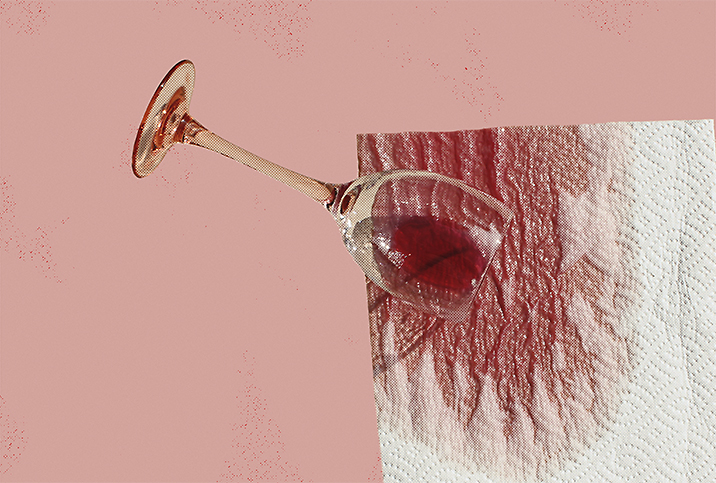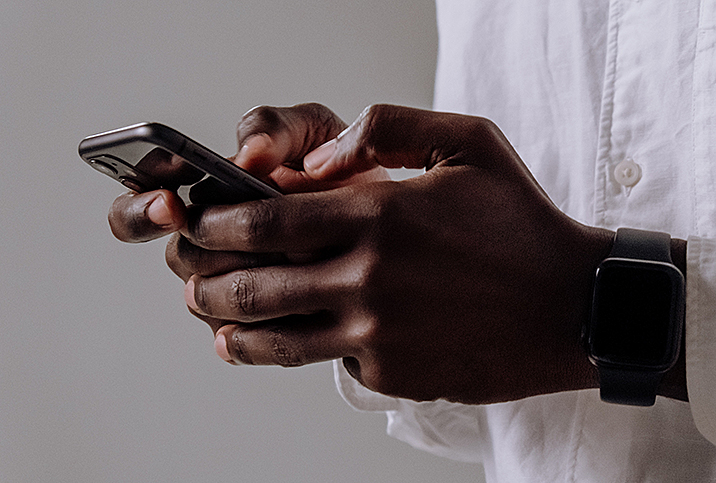Tips for a Better Period

During menstruation, the body goes through significant changes that can make us feel like we are being held captive by our bodily functions. Fortunately, making slight adjustments to our daily routine can allow us to continue the activities and lifestyle we enjoy without putting additional strain on our bodies during menstruation.
Bodily changes during your period and the effects
Throughout your menstrual cycle, hormone levels will rise and fall as your body prepares for the possibility of pregnancy. When pregnancy does not occur, your body adapts to this state with more hormonal changes to prepare the uterus to shed its lining, a process called menstruation.
The fluctuation of hormones and the swelling of the uterus can cause many physical and emotional symptoms. You can feel tired and bloated, or experience abdominal pain, food cravings and breast tenderness.
It's not uncommon for these symptoms to begin two weeks before your period and to continue for a few days into your period. These symptoms are part of premenstrual syndrome (PMS), and while this condition was once thought to be psychosomatic, the medical community has long recognized it as a physical condition that can vary in severity and sometimes continue into menstruation.
For most women, minor changes to their daily routine, such as taking anti-inflammatory medication or increasing physical activity, can help them cope with these symptoms. Unfortunately, for some women, the symptoms can be extreme and often debilitating.
While it's possible to manage symptoms, it sometimes may be difficult to find a doctor who takes your symptoms seriously. Documenting your symptoms—many apps have been designed specifically for this—and self-advocating are the best tools for diagnosis. While these physical conditions can seem overwhelming, there are many steps you can take to ease the discomfort of PMS both before and during your period.
Pain relief for PMS
Pain during PMS varies widely in quality and intensity, from small pinches or twinges that happen sporadically to a general heaviness or fullness in the abdomen that's best described as having a bowling ball sitting on the intestines. That fullness can feel like swelling and cause general abdominal discomfort and pressure into the pelvis, but most often it is no cause for alarm. If this abdominal discomfort or pressure impacts daily activities, it can be a sign of endometriosis or other more serious pelvic complications. Remember to document these symptoms and share them with your gynecologist at your annual visit.
There are many treatment options to make period pain less disruptive. Some women get relief from something as simple as a heating pad or a hot water bottle applied to the lower abdomen. Ice tends to be less effective, but if it feels good to you, go for it. In small studies, acupressure has been shown to be effective in reducing period pain and is unlikely to cause harm.
These are great options for when you are at home or sitting around, but otherwise taking a pain reliever tends to be more convenient. Over-the-counter anti-inflammatory medications like ibuprofen and naproxen work best because they block prostaglandins, the substance that causes your uterus to contract or cramp. If you cannot take anti-inflammatory medications, then acetaminophen can provide relief, as well. Period pain can be intense, but do not over the recommended dosage of these medications, because doing so can cause serious and life-threatening complications. If you find that over-the-counter options are not making a dent in your pain, then it is time to see your doctor. Oral contraceptives (birth control pills) can provide significant relief of even severe period pain.
Some people find relief with supplements such as vitamin B1, B12, magnesium, or omega-3 fatty acids; however, not enough studies have been done to recommend these as effective methods. It is always good to check with your doctor before starting any supplement and to choose a brand that is USP-certified.
Exercise and diet when menstruating
The foods you eat can also influence the intensity of your menstrual symptoms. Foods rich in omega-3 fatty acids, such as salmon, can reduce period pain, as can magnesium-rich foods like nuts, seeds and spinach. Try not to indulge in premenstrual cravings for junk food. Studies have shown that foods that are high in fat, sugar, and salt are associated with more painful periods.
Daily exercise is important for any healthy lifestyle, but it also has a benefit during menstruation. Aerobic exercise just three times a week for 30 minutes has been shown to significantly reduce period pain. The swelling of the uterus can cause painful bloating, which can push on the intestines, bladder and abdominal muscles. For women with irritable bowel syndrome (IBS), this pressure can cause constipation and intestinal cramps.
During menstruation, it's common to want to curl up on the couch with a heating pad, but continuing to work out can reduce cramps and abdominal discomfort. While running a marathon may not be the best choice, some light cardio work that warms up the muscles can help produce endorphins and oxytocin, your body's natural pain defense system, and may relieve discomfort.
In addition to cardio, stretching can also provide relief from crampy, sore muscles. Yoga poses such as cobra, cat and cow, spinal twists, and forward bends are gentle and target tight muscles in your abdomen and low back.
Regardless of your activity level before your period, it's important to remember that your body needs to maintain a balance between rest and activity. It's understandable to want to put your feet up, especially in the first few days of menstruation when cramps are at their worst, but getting active can help. A light workout can make you feel in control of your period rather than your period controlling you.
Sex during your period
In addition to exercise, it might be surprising to hear that orgasms during your period can actually relieve menstrual cramps. The reason is that your body naturally releases endorphins and oxytocin when you have sex. These natural pain relievers provide results similar to those from exercise. Some women report that their bleeding is actually shortened by period sex, possibly because the uterus contracts more intensely during orgasm, which helps shed the uterine lining faster. If cramps or bloating make penetrative intercourse seem downright torturous, focus on other intimate activities with a partner. Of course, you don't have to involve a partner at all; masturbation (focused on clitoral stimulation) will achieve the same result.
Other benefits of period sex are more about pleasure than pain relief. Menstrual fluid acts as a natural lubricant, so vaginal sex is much easier to have now than at any other time of the month. Progesterone levels drop precipitously leading up to menstruation—progesterone has a negative effect on libido—so it's not uncommon to feel more aroused, and for the sex to feel more intense, which could lead to a better orgasm.
It's true that with the extra bodily fluids, period sex can be far messier. However, with some planning and the right sexual positions, you can have period sex without the cleanup. The best place for period sex is in the shower. This allows for easy cleanup as any mess will literally go down the drain, and the hot water can help to soothe those achy muscles.
When to see a doctor
Pain, discomfort and fatigue are all part of the menstrual cycle, but sometimes these symptoms can be a sign of bigger problems. If heavy bleeding is part of your regular monthly cycle, you may be experiencing menorrhagia, which is heavy bleeding that results in doubling up on pads, changing pads frequently and passing clots. Women are best served by knowing what is considered abnormally heavy bleeding, because they only have their own period as a reference point—they don't know what is normal and what is pathologic.
Per the American College of Obstetricians and Gynecologists, heavy bleeding can be bleeding lasting more than seven days, saturating a pad or tampon every one to two hours for several hours in a row, needing to wear more than one pad at a time, needing to change a pad in the middle of the night due to saturation, or blood flow with clots the size of a quarter or bigger.
Another complication that can cause intense menstrual symptoms is endometriosis. This condition is difficult to diagnose and treat because the symptoms are often mistaken for menstrual symptoms. Women with endometriosis can experience intense pelvic pain during menstruation and constant pelvic discomfort throughout the rest of the month.
Document your symptoms
Symptoms experienced around menstruation are as varied as the people who have them, and there is a wide range of what is considered normal. What is most important is paying attention to what is normal for you. Many periods are easy to manage at home with a few over-the-counter tools, but if your symptoms have gotten intolerable, or if you have noticed a change in your symptoms or bleeding pattern, it is time to have a chat with your physician. Tracking your periods and symptoms on a calendar—there are many free apps for this, or pen and paper are fine—can be crucial in helping your physician make the correct diagnosis more quickly and get you the relief you need.


















